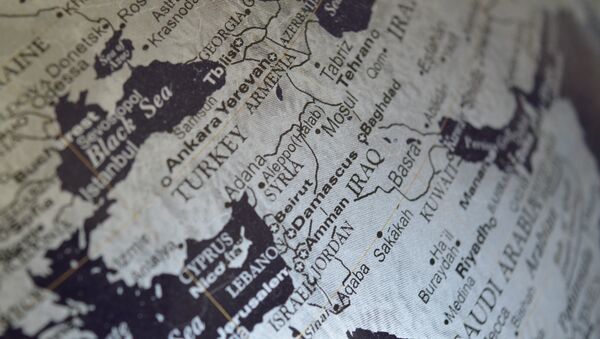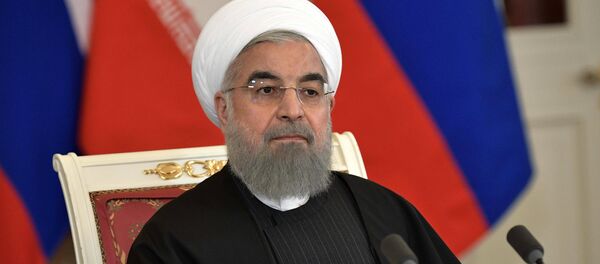Since his presidential campaign, Trump has been a vocal critic of the Iranian nuclear deal and by opposing this agreement, the US president "wants to put a stop to any sort of a political deal in the Middle East," Marwa Osman, an independent journalist and political commentator, told Radio Sputnik.
Stressing that the agreement could be a "founding base for future political deals" in the Middle East, she said that Trump now seems very much eager to stop any sort of political process and go towards increasing tensions in the region by standing against Tehran.
"The US is trying to increase its warmongering rhetoric in the region. Basically, that’s what is happening," Osman said.
Commenting further, the expert pointed out that a crucial component of Washington’s policy in the Middle East is Iran’s longtime rivals in the region.
"Donald Trump said that he wants to enhance the support for the enemies of Iran in the Middle East, in order to help them stop or hinder the power of Iran," Osman said, referring to Israel and Saudi Arabia.
Pointing to the fact that Israel has been opposing a nuclear deal with Iran from the very start, Osman said that the US now relies on Israel to create a power counterbalance against Iran, the "only remaining real power" in the Middle East.
"Listening to Israel and other allies is unlikely to benefit to the US policy in the Middle East," Osman concluded.
On Friday, Trump unveiled a new US strategy on Iran, saying that his administration is determined not to certify that Iran is in compliance with the Joint Comprehensive Plan of Action (JCPOA). The US president has also ordered the Department of the Treasury to impose new sanctions against the Iran Revolutionary Guard Corps (IRGC) for providing assistance to terrorist groups.
On July 14, 2015, Iran and the P5+1 group of countries, comprising the US, Russia, China, France and the United Kingdom plus Germany, signed the Joint Comprehensive Plan of Action, ensuring the peaceful nature of Tehran's nuclear program in exchange for sanctions relief. The plan came into force on January 16, 2016.




